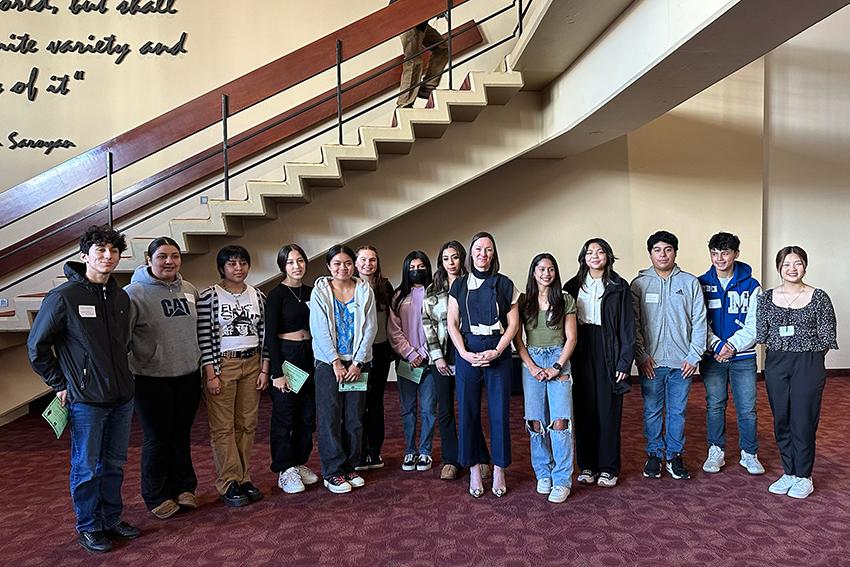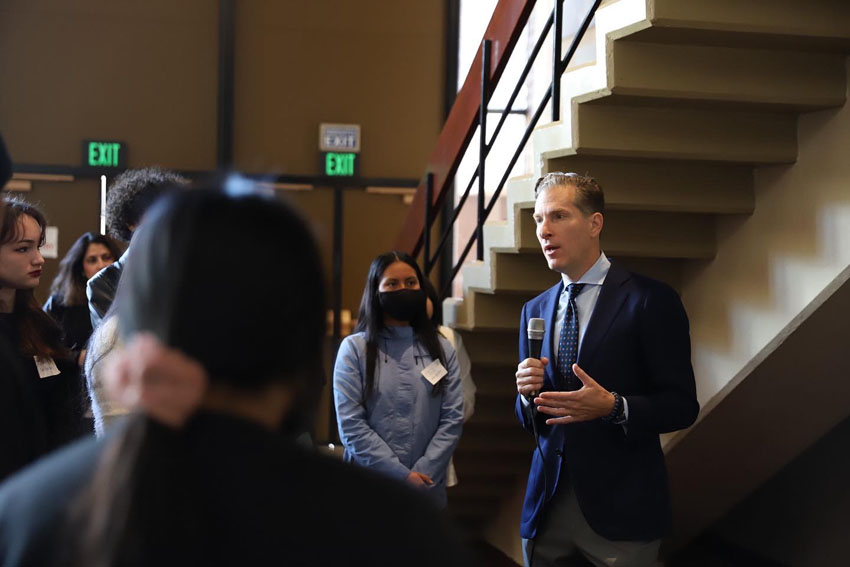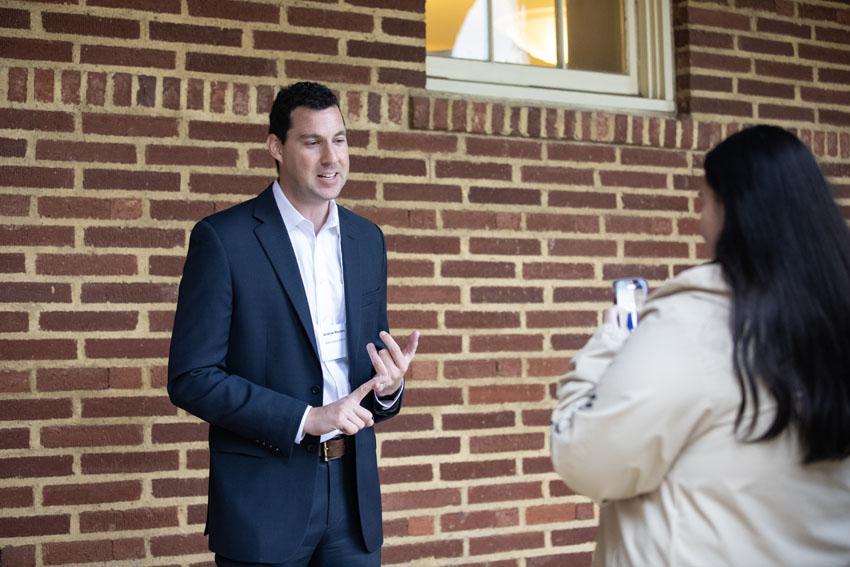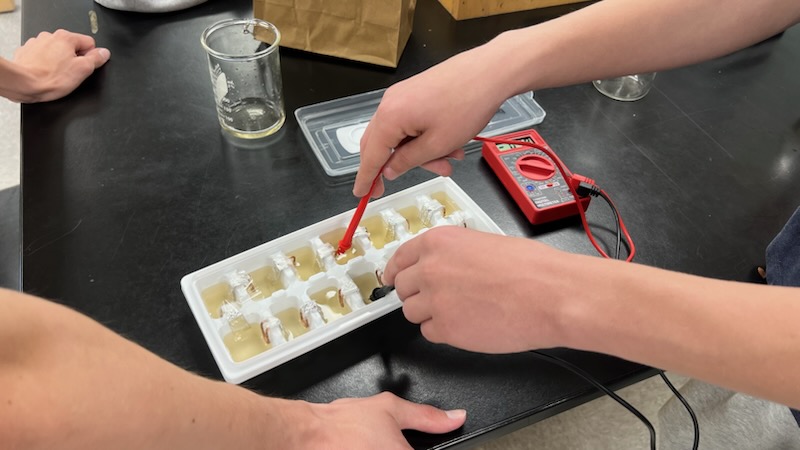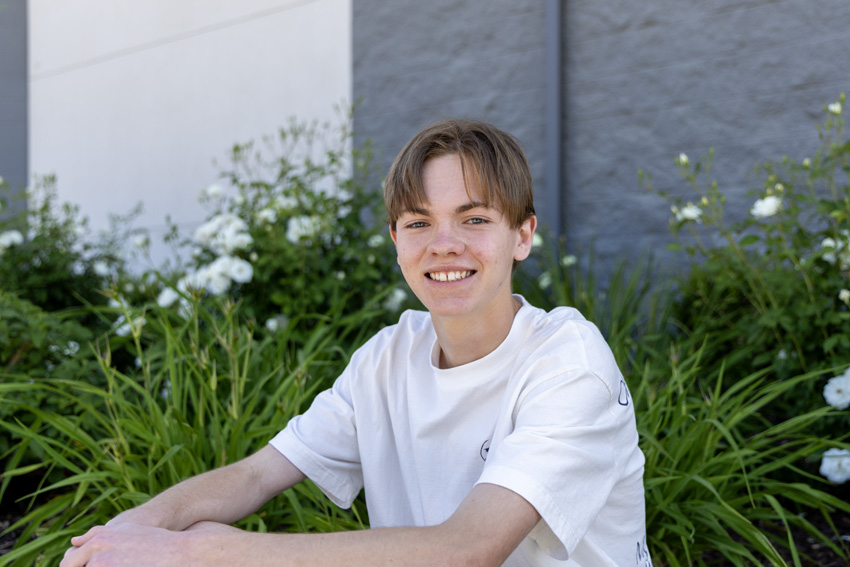Professor of Medicine lectures on the intricacies of the microbiome
San Joaquin Valley Town Hall features Susan Lynch as the monthly speaker to educate the public about gut microbiomes, their vitality and her related findings, March 15.
Susan Lynch is the Professor of the Department of Medicine, and Director of the Colitis and Crohn’s disease Microbiome Research at UCSF. She is also the cofounder of Siolta Therapeutics, a company focused on the human microbiome determined to advance treatments and prevention for a multitude of diseases.
Lynch studied at the University of College Dublin where she earned a BS in Microbiology/Biostatistics, 1995, and a PhD in Microbiology, 2000.
“If Your Gut Could Talk”
A community of microbes, tiny organisms inhabiting everything from a person’s stomach to volcanic lava, make up the microbiomes. The diversity of microbes have been proven to be beneficial for health, as these micro-organisms extract DNA and make copies of all genes in the sample based on the region and identify the bacteria, without actually developing the bacteria.
Scientists are able to examine microbiomes through gnotobiotic animals, conventional animals, primary immune cell assays, cell lines and organoids.

The gut microbiome, located in the small and large intestines, produces a definitive amount of 30% of a human’s molecules. Cardiovascular disease, autism, food allergies and obesity are all linked to the gut.
The gut possesses the capability to morph pollutants and chemicals into detoxification or a more potent version, offering a plausible explanation for why people respond with varying effects to the same pharmaceutical medications.
Fascinated, Lynch took an interest towards fecal microbial transplant, producing a trial treatment for her research. Research included analyzing the outcomes of taking healthy stool from a “healthy” donor, emptying the gut of the recipient “unhealthy” patient and coating the patient’s gut with the donor’s contribution. The trial treatment concluded with 92% of the recipients accepting the transplant.
The AP Biology class attended the town hall to further their knowledge on human anatomy. Jazmine Davidson, ’23, one of the attendees, became more aware on diet after listening to the speaker.
“I found it interesting that the speaker has devoted so much time to this subject and that she was able to convey information in a very understandable way,” Davidson said.
The connection between the entire human organism with the host genetic date, allowing what is or is not transcribed for modifications, implements markers. This allows for predictions of who will develop a disease or differentiate which groups need certain medication.
Over the first three years of life microbes are accumulated in biomes, influenced by environmental activities and diet. Ultimately people are a reflection of their adolescence, based on what their health looks like today.
In another one of Lynch’s studies, her and her team examined children with asthma compared to those without. It was found that the children diagnosed with asthma had a number of bacteria blocking the airways causing inflamed pathogenic airways, leading to lower lung function.
“To my mind, I always like to think about what we do know, what drives that event to occur? So what we’ve done is dial back the timeline into very early human development in early infancy, even in the prenatal period to understand whether there are early microbial indicators that a baby is on trajectory to developing asthma,” Lynch said. “That’s led us to understand that yes there are, and secondly, that we can actually intervene in the area stages of life and hopefully change how the microbiome develops in those babies to prevent disease development.”
The origin of asthma can be traced to before the individual was born, the causes can range from maternal stress to the dietary components of the mother.
The teacher of AP Biology, Jacob Cantu, has child and a baby on the way; he confides his concerns of raising children with so many risk factors due to environmental attributes.
I find it worrying that kids are so easily molded to developing diseases, and how even before the birth, a disease could be transcribed already for the future,” Cantu said. “But Lynch’s lecture encourages how a healthier lifestyle for children, and their parents, to prevent any health concerns to begin with.”

Natal babies depleted from a range of bacteria are functionally deficient in their metabolic pathways, hinting at asthma. One month olds with cell free products could promote an allergic inflammation, driving them towards asthma before a diagnosis is even placed.
“A lot of what we do is in prevention because we want to stem the tide of allergic disease and asthma, but we are also studying the upper airways in children and asthma,” Lynch said. “What we’re finding there is the types of microbes that colonize the upper airways dictate whether a child will have an asthma exacerbation or not.”
A substantial concern within the Central Valley is the amount of children’s who are diagnosed with asthma. Approximately 157,000 of adolescents between the ages of 0-17 have asthma, making up 15.8% of children in San Joaquin Valley.
“Asthma leads to reduced lung function and their ultimate conditions and morbidities that they have associated with the disease,” Lynch said. “So if we can stop those events of asthma exacerbations, we can improve the lives and quality of life for children with asthma.”
To stop the disease is to predict and prevent it from happening in the first place, such as tailored therapy, precision microbiome engineering and accelerated translational discovery.
Lynch closed her speech by disclosing the gravity of her research and advises that the first step to a healthier body is a health-conscious lifestyle. Predict, prevent and treat – the steps of progression for the betterment of medicine.
To further learn on Lynch’s research at UCSF, check out Lynch Lab.
For more San Joaquin Valley Town Hall lectures, go to Noah Feldman speaks at San Joaquin Valley Town Hall and Rick Steves visits San Joaquin Valley Town Hall.
To read more from The Feather, go to Mental toughness in athletes or Senior Lifer – Dylan Tozlian.



